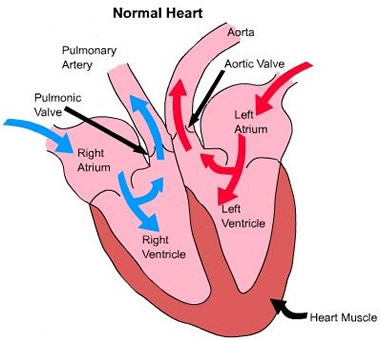
Recommendations For The Control of Aortic Stenosis (October 1993)
By Bruce Cattanach Steynmere Boxers


The following points should be noted:
The revised recommendations being proposed are based on a number of veterinary conclusions, some of which have been modified in the light of recent research findings. Further developments are possible. However, it should be stressed that, as initially, the recommendations are liable to err conservatively, this being necessitated by the observed high incidence of dogs with heart murmurs and the need to avoid excessive restraint upon breeding programmes.
Recommended actions are based upon the incidence of normal, rather affected dogs. This warranted by
The probable mode of inheritance determined from studies in other breeds.
The family studies which are now yielding direct evidence to show that the progeny deriving from the "best" parents are far less at risk of having murmurs associated with aortic stenosis than from others.
The high incidence of dogs with heart murmurs
The further need to avoid other heart conditions such as pulmonic stenosis and cardiomyopathy
<
The recommendations have three basic objectives:
To allow breeders to evaluate their own stock and conduct their own family studies with dogs of all ages.
To provide breeders with a means of breeding away from, or avoiding aortic stenosis and, hopefully other heart conditions.
To provide research information on heart defects that will ultimately be fed back into the breed.
Specific Recommendations For Breeders
A. In the case of adults i.e. over 12 months of age:
All stock should be screened by designated cardiologists.
Those which are free of heart murmurs (Grade 0) may be considered free of aortic stenosis, and suitable for breeding purposes.
Those which have only minor (Grade 1) murmurs may, for the moment be accepted as normal and therefore suitable for breeding purposes.
Stock with Grade 2 murmurs may be re-screened (up to three times)
Those which on any re-screening obtain a Grade 1 score, or even found to be murmur free, may be considered suitable for breeding.
Those which are consistently found to have Grade 2 or louder murmurs should normally be discarded for breeding purposes, unless in the case of bitches there is no alternative other than to disband the whole of a kennels breeding stock. When
Selected bitches should be mated only to stud dogs that are considered to be normal (as described above), preferably murmur free.
At most only one or two litters should be taken with the objective of breeding a murmur free replacement.
In the case of dogs with murmurs consistently no louder than Grade 2, Doppler echocardiography may be a further option. Those with blood velocities below 2.0 m/s may, for the present be considered suitable for breeding. Other useful Grade 2 dogs might, for the present be available for stud to a strictly limited number of bitches. These bitches should be murmur free or have at the most only Grade 1 murmurs. Dogs with Grade 3 or louder should never be considered for breeding purposes, even if they have a blood velocities below 2.0 m/s.
Bitch owners are strongly advised to use only tested and proven normal dogs at stud.
Dog owners are advised to offer only tested and proven normal dogs for stud purposes and ensure, before accepting bitches for service, that their owners are complying with recommended control procedure. At owners risk, stud services could be provided for untested, non-show bitches both of whose parents are murmur free or having Grade 1 murmurs.
Stock incidentally identified as having heart abnormalities other than aortic stenosis, e.g. cardiomyopathy or pulmonic stenosis, should not be considered for breeding purposes.
B. In the case of young stock i.e. under 12 months of age: Puppies aged 6 – 12 months can usefully be tested in the same manner as adults but the results must be interpreted with discretion. Because aortic stenosis develops progressively it cannot be assumed that those that are free of murmurs or have Grade 1 murmurs will be found to be so as adults; there prospects may nevertheless be considered relatively good. On the other, those found to have Grade 2 or louder murmurs are unlikely to become suitable prospects for breeding purposes, and may be at risk of developing the clinical effects of aortic stenosis in later life. The testing of puppies is strongly recommended. Their retesting as adults is essential, however.
Additional Information
To aid breeders implement the recommended breeding control procedures, a list of dogs which are murmur free (Grade 0) or have only minor murmurs (Grade 1) is continually being collated and updated. Copies are available form the Breed Council secretary or secretaries of breed clubs.
Most breed clubs hold heart-testing clinics with designated cardiologists in attendance at one of their shows each year. Private testing can be obtained by referral through owner’s vets. A list of designated cardiologists may be obtained from the Breed Council secretary or breed club secretaries or heart delegates.
Cardiologists may advocate ultrasound scanning and Doppler echocardiography for dogs with Grade 3 or louder murmurs as means of evaluating the severity of the condition, i.e. for purely veterinary reasons.
Baby puppies aged 8 – 12 weeks commonly have minor "flow" murmurs, which usually disappear by about 16 weeks. These are not known to be associated with heart disease in the adult. However, puppies with loud, harsh murmurs should be referred through one’s vet to cardiologists for evaluation.
Supplementary Notes
It is strongly recommended that prior to importing stock for breeding purposes, purchasers should ensure that prospective imports are suitably heart tested by qualified cardiologists to ensure they are free of heart defects.
All breeding stock prior to export abroad should similarly be heart tested and established as normal. In the case of young stock (under one year of age) only those which are free of heart murmurs and have murmur-free or Grade 1 parents should be considered eligible for export, except with the express agreement with purchasers.
